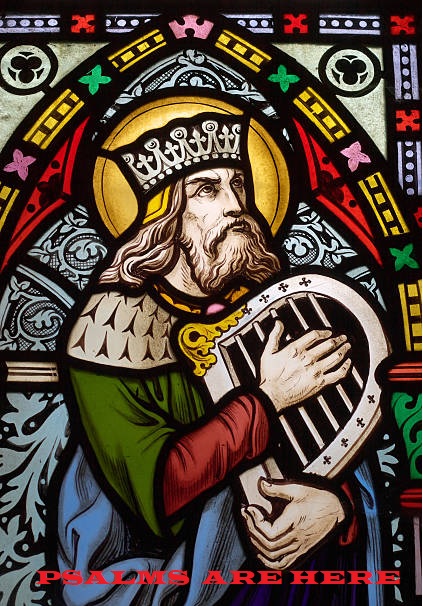Why Do Many Christians Observe Sacraments? That is to say, Why Do Christians Observe Sacraments? Or, What Is Sacraments For Christians? This is a continuation of our series on Christian Fundamentals. This is Why Do Many Christians Observe Sacraments?
Many Christians observe sacraments because they are considered sacred rites instituted by Jesus Christ that play a central role in the Christian faith. Sacraments serve as outward signs of inward grace, symbolizing and conveying God’s presence, forgiveness, and blessings in the lives of believers. These practices are not merely rituals but are deeply spiritual acts that connect Christians to the foundational truths of their faith, reinforcing their relationship with God and the Christian community. For Christians, sacraments are vital expressions of their commitment to God and their participation in the life of the Church.

Why Do Many Christians Observe Sacraments?
In fact, many Christians observe sacraments because they are seen as sacred practices instituted by Jesus Christ that convey grace, strengthen faith, and symbolize key aspects of the Christian life. These sacraments serve as visible signs of God’s invisible grace and are central to the spiritual life and worship of the Church. So, here are some key reasons why Christians observe sacraments, supported by biblical references:
Instituted by Christ – Why Do Many Christians Observe Sacraments?
- Matthew 28:19-20: “Therefore go and make disciples of all nations, baptizing them in the name of the Father and of the Son and the Holy Spirit, and teaching them to obey everything I have commanded you. And surely I am with you always, to the very end of the age.”
- Baptism is one of the sacraments directly instituted by Jesus, signifying entrance into the Christian community and the beginning of a life dedicated to following Him.
- Luke 22:19-20: “And he took bread, gave thanks and broke it, and gave it to them, saying, ‘This is my body given for you; do this in remembrance of me.’ In the same way, after the supper he took the cup, saying, ‘This cup is the new covenant in my blood, which is poured out for you.'”
- The Lord’s Supper (Eucharist) was established by Jesus at the Last Supper, where He commanded His disciples to continue this practice in remembrance of His sacrifice.
Means of Grace – Why Do Many Christians Observe Sacraments?
- Acts 2:38: “Peter replied, ‘Repent and be baptized, every one of you, in the name of Jesus Christ for the forgiveness of your sins. And you will receive the gift of the Holy Spirit.'”
- Sacraments like baptism are believed to be a means through which God imparts His grace, such as the forgiveness of sins and the gift of the Holy Spirit.
- 1 Corinthians 10:16: “Is not the cup of thanksgiving for which we give thanks a participation in the blood of Christ? And is not the bread that we break a participation in the body of Christ?”
- The Eucharist is seen as a means of grace where believers participate in the body and blood of Christ, symbolizing their unity with Him and the Church.
Sign of Covenant – Why Do Many Christians Observe Sacraments?
- Romans 6:3-4: “Or don’t you know that all of us who were baptized into Christ Jesus were baptized into his death? We were therefore buried with him through baptism into death so that, just as Christ was raised from the dead through the glory of the Father, we too may live a new life.”
- Baptism is a sign of the believer’s covenant with God, symbolizing the death of sin and resurrection to new life in Christ.
- 1 Corinthians 11:26: “For whenever you eat this bread and drink this cup, you proclaim the Lord’s death until he comes.”
- The Eucharist serves as a proclamation of the new covenant established by Christ’s sacrifice, reminding believers of His death and the hope of His return.
Strengthening of Faith – Why Do Many Christians Observe Sacraments?
- 1 Peter 3:21: “And this water symbolizes baptism that now saves you also—not the removal of dirt from the body but the pledge of a clear conscience toward God. It saves you by the resurrection of Jesus Christ.”
- Observing sacraments like baptism strengthens the believer’s faith by providing a tangible expression of their commitment to God and His saving work.
- John 6:54-56: “Whoever eats my flesh and drinks my blood has eternal life, and I will raise them at the last day. For my flesh is real food and my blood is real drink. Whoever eats my flesh and drinks my blood remains in me, and I in them.”
- Participating in the Eucharist deepens the believer’s spiritual life by reinforcing their relationship with Christ and reminding them of the promise of eternal life.

Understanding the Importance of Sacraments
Sacraments hold deep significance for many Christians, serving as essential elements of their faith and spiritual practice. Here’s how they are understood:
Grace – Why Do Many Christians Observe Sacraments?
- Sacraments are believed to convey God’s grace, acting as channels through which believers receive spiritual nourishment, strength, and support throughout their lives. Whether through baptism, the Eucharist, or other sacraments, Christians experience a tangible connection to God’s divine presence, reinforcing their faith and commitment.
Tradition – Why Do Many Christians Observe Sacraments?
- Observing sacraments connects Christians to the rich history of their faith, linking them to practices that have been passed down through generations. This continuity ensures that the core teachings and rituals of Christianity remain vibrant and relevant, preserving the faith and its values over time.
Community – Why Do Many Christians Observe Sacraments?
- Sacraments also play a crucial role in strengthening the bonds among believers, fostering a sense of belonging and unity within the Christian community. Through shared participation in these sacred rites, Christians come together to express their collective faith, support one another, and grow in their spiritual journey as a united body of Christ.

Understanding the Importance of Sacraments in Christianity – Exploring the Spiritual Significance of Christian Sacraments
Sacraments hold a place of profound importance in the lives of many Christians, serving as both expressions of faith and means of deepening their spiritual journey. These sacred rites, instituted by Jesus Christ, are not merely symbolic actions but are believed to be channels through which God’s grace is conveyed to believers. Through the sacraments, Christians experience a tangible connection with God, receive spiritual nourishment, and reaffirm their commitment to living a life rooted in the teachings of Christ.
Expression of Faith
Observing sacraments is a way for Christians to outwardly express their inward faith. Whether through baptism, which marks the beginning of a believer’s spiritual journey, or the Eucharist, which commemorates Christ’s sacrifice, these rituals embody the core beliefs of Christianity. By participating in the sacraments, believers publicly affirm their trust in God’s promises and their desire to follow Jesus. This expression of faith is not just a personal act but a declaration of one’s identity as a member of the Christian community.
Connection with God
Sacraments serve as vital links between the divine and the human. Through these sacred practices, Christians believe they receive God’s grace—His unmerited favor and assistance—uniquely and powerfully. For instance, the Eucharist is seen as a moment of intimate communion with Christ, where believers partake in His body and blood, symbolically drawing closer to Him. Baptism, similarly, is viewed as a spiritual rebirth, where one is cleansed of sin and initiated into the life of Christ. These experiences of sacramental grace help to sustain and nurture the believer’s relationship with God, providing strength and guidance for their spiritual journey.
Participation in the Community of Believers
Sacraments are also deeply communal, fostering a sense of unity and belonging among Christians. They are not only personal acts of faith but also collective experiences that bind the Church together. When Christians gather for the sacraments, they do so as a body of believers, sharing in the same faith and rituals that have been practiced for centuries. This communal aspect of the sacraments helps to reinforce the bonds between believers, creating a shared identity and a sense of continuity with the broader Christian tradition. It reminds Christians that they are part of a larger, global family of faith, connected through their common participation in these sacred rites.
Continuity and Tradition
Sacraments also play a crucial role in maintaining the continuity of the Christian faith across generations. They are rituals that have been handed down through centuries, connecting modern believers with the early Church. By observing the sacraments, Christians not only honor the teachings of Jesus and the apostles but also participate in a tradition that has shaped the Church’s identity and practices throughout history. This continuity ensures that the faith remains vibrant and rooted in its foundational truths, even as it adapts to new contexts and cultures.
As you can see, Why Do Many Christians Observe Sacraments? sacraments in Christianity are much more than mere rituals; they are vital practices that express faith, connect believers with God, foster community, and maintain the continuity of the Christian tradition. Through the sacraments, Christians experience the grace of God in tangible ways, deepen their spiritual lives, and participate in the life of the Church, both locally and globally. These sacred rites serve as a constant reminder of the presence and work of God in the world, helping believers to live out their faith with renewed purpose and conviction.
Contact Us:
Feel free to contact us if you’re seeking inspirational help. We’re here to support and encourage you on your journey. You can contact us via email at gospelpulpit7851@gmail.com or call us at 818-417-5508.

Related Topics: Why Do Many Christians Observe Sacraments?
- What is the Great Commandment for Christians?
- The Great Commission
- 20 Christian fundamental beliefs
- Why Teenage Marriages Fail
- Traditional Marriage and Christianity.
- Challenges of Teenage Marriages
- This is What Saith the scriptures?
- Standing on the Promises of God
- Gospel Pulpit: See how life flows out of it
- Gospel Summit: This is how it works
- business start-ups need
- Professional and career tips
Concluding on Why Do Many Christians Observe Sacraments?
In conclusion, Christians observe sacraments because they are deeply significant practices that embody the essence of their faith. Sacraments serve as vital connections to God’s grace, helping believers to experience His presence tangibly. They also reinforce the continuity of Christian tradition and foster a sense of unity within the community of believers. Through these sacred rites, Christians express their commitment to living a life that honors God, strengthens their spiritual journey, and connects them to the broader body of Christ, both past and present. For Christians, sacraments are more than rituals—they are profound encounters with the divine that shape and sustain their faith. This is, Why Do Many Christians Observe Sacraments?





